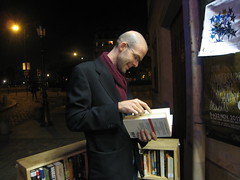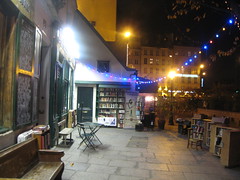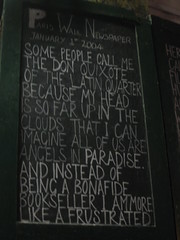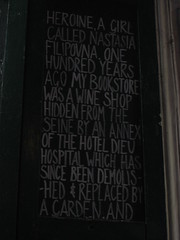I found this in Rich’s second book, The Diamond Cutters, but there isn’t a citation noting whether it was published prior to this book.
Why should you read this? Because it’s a science fiction poem and rather excellent, only the latter of which you might have expected from Adrienne Rich but you will not be disappointed.
The Explorers
Beside the Mare Crisium, that sea
Where water never was, sit down with me,
And let us talk of Earth, where long ago
We drank the air and saw the rivers flow
Like comets through the green estates of man,
And fruit the colour of Aldebaran
Weighted the curving boughs. The route of stars
Was our diversion, and the fate of Mars
Our grave concern; we stared through night
On these uncolonized demesnes of light.
We read of stars escaping Newton’s chain
Till only autographs of fire remain;
We aimed our mortal searchlights into space
As if in hopes to find a mortal face.O little Earth, our village, where the day
Seemed all too brief, and starlight would not stay,
We were provincials on the grand express
That whirled us into dark and loneliness.
We thought to bring you wonder with a tale
Huger than those that turned our fathers pale.
Here in this lunar night we watch alone
Longer than ever men have watched for dawn.
Beyond this meteor-bitten plain we see
More starry systems than you dream to be,
And while their clockwork blazes overhead,
We speak the names we learned as we were bred,
We tell of places seen each day from birth—
Obscure and local, patois of the Earth!
O race of farmers, plowing year by year
The same few fields, I sometimes seem to hear
The far-off echo of a cattle-bell
Against the cratered cliff of Arzachel,
And weep to think no sound can ever come
Across that outer desert, from my home.




